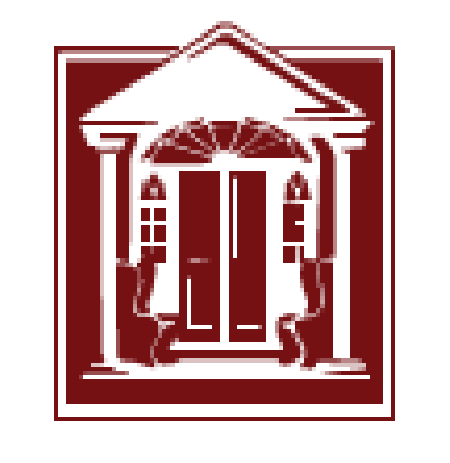Beginning of Year Letter to Seventh Grade (Incl. Supply Lists)
Dear Students and Families of the Class of 2017,
We hope that you are enjoying the start to your summers—you have certainly earned it through all of the hard work that you have done this year! We are delighted to welcome you to the seventh grade homeroom. This year you will have added independence as you change classes throughout the day. In homeroom, we will be working on strategies to help you get organized and stay on top your classes. We will also hold discussions about important topics and events as they come up and prepare you for what will surely be the highlight of the year: your trip to Costa Rica! Both of us are excited to be able to work with you all, having gotten to know you over the past years in our own classes, and we look forward to the energy that you will bring to our homeroom.
The move from sixth to seventh grade is a big transition that requires many skills, including organization and time management. From the very first day, we will help you manage these skills. We will provide a demonstration on ways to set up your locker, which binders to carry at different points, and how to best manage your schedule. In addition, seventh grade is a very important academic year. All of your teachers recognize this and will provide you with many opportunities for you to shine as you get ready for high school. In homeroom, we will be talking about the process of staying for tutorial after school and how to manage long-term projects, a greater number of assessments, and even (gulp!) finals. We are confident that all of you bring the academic skills and effort to succeed this year, and we are here to help you do so.
In seventh grade, you will be placed in an advisory, and your advisor will be a key person to support you throughout the year. We also hope that we can support each and every one of you with any questions, concerns, or needs that you have. Our goal is to make your seventh grade year as great an experience as possible. Throughout the summer, feel free to contact us if you have any questions about seventh grade. Josh can be reached at jgoodstein@greenestreetfriends.org and Marie can be reached at mhuard@greenestreetfriends.org. Although we may not be checking email quite as frequently as we do during the school year, we will be sure to get back to you.
The following pages include a supply list for each of your classes, which you should have by the first day of school, as well as course descriptions for each of the classes you will be taking. Don’t forget to bring an SSR book and any summer assignments on the first day as well!
Looking forward to a great year, see you in September,
Josh Goodstein, Science Teacher and Seventh Grade Homeroom
Marie Huard, Art Teacher and Seventh Grade Homeroom
Katherine Vidoni, Music Teacher and Seventh Grade Homeroom
Dionne Willis, Math Teacher and Seventh Grade Homeroom
Seventh Grade Course Descriptions
Language Arts (Marty Foley)
The 7th grade Language Arts curriculum balances teacher-directed work with student-centered and student-initiated work to strengthen reading, writing, listening and speaking skills. Students will develop these skills by reading a variety of literary genres, writing to meet multiple objectives, and engaging in small and large group presentations and discussions. Quite often throughout the year, language arts and social studies are integrated to make the learning process more meaningful and provide opportunities to explore complex social and moral issues and themes.
Please feel free to contact me if you have any questions or concerns. You can reach me at mfoley@greenestreetfriends.org. I look forward to working with you this year!
Social Studies (Marty Foley)
In 7th grade Social Studies, we focus on the collision of conflicting agendas that have marked the development of the United States and the North American continent. From pre-Columbian contact, the class will trace the growth of the nation through the study of key episodes like exploration, colonization, revolution and the development of government.
We examine the wide variety of ways in which history can be recorded, and learn to differentiate between fact and opinion. In addition to the text book, we use a digital curriculum that uses primary sources, film, music, photographs, and articles to bring past moments to life and enable students to take historical perspective. The skills of note-taking, outlining, reading comprehension and studying are monitored and developed throughout the year, and students engage in the research/writing process.
Mathematics (Dionne Willis and Kim Kraemer)
This year we are excited to present Pre-Algebra and Algebra in a flipped classroom model for our seventh grade students! In essence, homework will be to view a 10-minute lesson online each night and take notes. Each student will bring notes and questions back to the class the following day for discussion and practice. Within this structure, we will be exploring major themes in Pre-Algebra and Algebra including linear equations and inequalities, systems of equations, quadratic functions and more. Our emphasis this year will be on providing a traditional Math experience in content while allowing students to manage their learning of the material in varied ways.
Science (Josh Goodstein)
The theme for seventh grade science is forces, energy, and change; this will range from physical forces and energy to the forces that impact our environment. We will begin the year by studying the key vocabulary associated with motion. Our study of motion will continue with Newton’s Laws; we will explore how three simple laws can account for all motion in the universe. We will then be able to construct our own labs to test different questions of motion, which will serve as the basis for this year’s science showcase. Next, we will study laws of gravity and try to apply them to explore astronomical phenomena that scientists are just starting to understand. In the spring, we will turn our attention to energy; by investigating the transfer of energy, we will hopefully be able to construct safe devices for the famous egg drop. Next, we will look at the way that matter and energy flow through ecosystems, which will allow us to examine the impact that human actions have on these ecosystems. Our year will conclude with an in-depth study of climate change, and all students will propose and implement a project to become an environmental force for good. Through inquiry activities, we will build our own understanding of natural phenomena, and we will show what we have learned through many creative assessments.
This year’s science course will meet five days a week (as opposed to the four days that it has met in the past) in order to combine the teaching of science and health. Throughout the year, and particularly in the spring we will be completing mini-units covering key health topics. We will learn about where to obtain reliable health information, how to assess health claims, and how to make wise choices on a variety of health topics. Students will leave the course equipped to make more informed and positive decisions that will minimize their own risks.
Spanish (Kristin Shipler)
¡Bienvenidos! In 7th grade, Spanish becomes a core class and students are expected to dedicate more time and focus to the study of the language. We will continue to build on grammatical structures, speaking, and listening skills and use previously learned vocabulary in order to write and speak in a more organized and comprehensive manner. We will meet four times a week to practice our skills and learn new concepts. We will continue to use songs, games, exercises, videos, books, and verbal drills to learn the Spanish language. Students are expected to complete homework and to perform weekly quizzes, as well as, a variety of projects each semester.
The Costa Rican Educational Program is introduced at this level. We focus on cultural awareness and practical communication skills in order to prepare the students for the trip. I look forward to having a phenomenal year sharing my passion for the Spanish language and culture with the class. Assignments, projects, and dates for quizzes will be posted on the school’s website in order to keep parents informed. ¡Hasta pronto!
Unified Arts (Marie Huard and Katherine Vidoni)
Unified Arts is a project-based course with a two year rotating curriculum. Seventh and eighth grade classes are divided and then recombined into two mixed 7/8 classes. Each class studies art for one semester and music for one semester. A single theme unites the two disciplines. Students share final projects with each other so that all students gain an understanding of the era or theme from a visual as well as musical perspective. This year's theme will be the European Renaissance.
In the Visual Arts section of the year, Unified Arts students will explore sculpture, architecture, and iconography of the European Renaissance. Students will look closely at the work of artists essential to the period including, Michelangelo, Leonardo da Vinci, Sandro Botticelli, and Albrecht Duerer. These works will be presented side by side with a selection from other cultures and time periods with related themes. Class discussions will focus on a comparative study of the artworks presented. Students will paint on canvas, create mosaics, experiment with printmaking, and sculpt with clay. Each student will also be required to do independent research on a specific Renaissance artwork and create a Final Project in a media of his or her choice.
In the European Renaissance music unit, we will study composers essential to the European Renaissance Era, including Josquin Desprez, Giovanni Pierluigi da Palestrina, Thomas Weelkes and William Byrd. Sacred music forms like the Motet and the Mass will be explored, as well as secular forms, including madrigals, chansons (French songs with sung lyrics) and instrumental dance music. Additionally, we will focus largely on the music theory and form that developed during the time period. The rules that govern western classical music as we know it were developed during this era. This course will culminate in a composition project that will require each student to demonstrate his/her knowledge of these composition guidelines. The third and final aspect of this course is the study of the recorder. This instrument was widely used during the European Renaissance, particularly in dance music. All students will be required to purchase a recorder ($5.00), practice playing skills at home, complete playing quizzes in class, and write a composition using their recorder.

